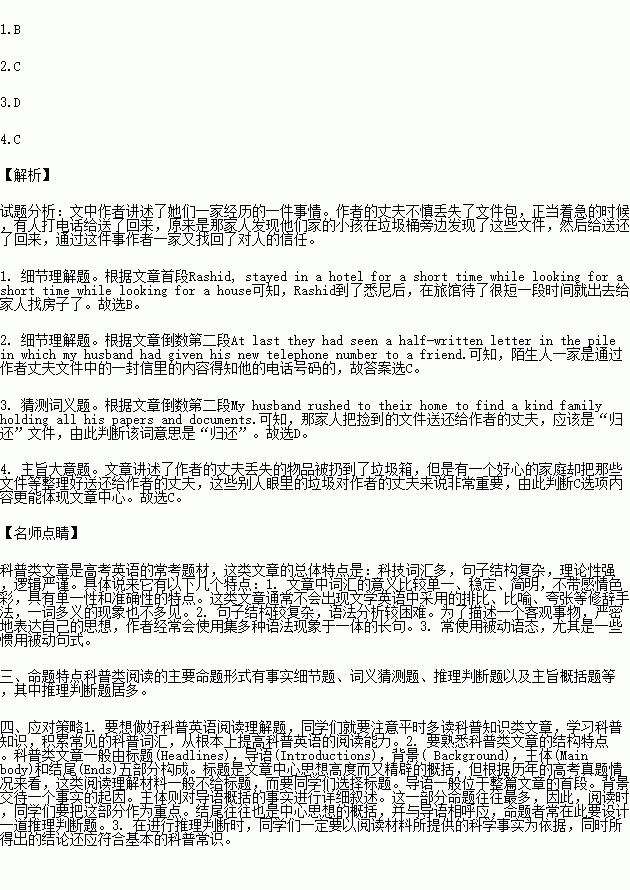题目内容
Arriving in Sydney on his own from India, my husband, Rashid, stayed in a hotel for a short time while looking for a house for me and our children.
During the first week of his stay, he went out one day to do some shopping. He came back in the late afternoon to discover that his suitcase was gone. He was extremely worried as the suitcase had all his important papers, including his passport.
He reported the case to the police and then sat there, lost and lonely in the strange city, thinking of the terrible troubles of getting all the paperwork organized again from a faraway country while trying to settle down in a new one.
Late in the evening, the phone rang. It was a stranger. He was trying to pronounce my husband’s name and was asking him a lot of questions. Then he said they had found a pile(堆) of papers in their trash can(垃圾桶) that had been left out on the footpath.
My husband rushed to their home to find a kind family holding all his papers and documents(文件). Their young daughter had gone to the trash can and found a pile of unfamiliar(不熟悉的) papers. Her parents had carefully sorted them out, although they had found mainly foreign addresses on most of the documents. At last they had seen a half-written letter in the pile in which my husband had given his new telephone number to a friend.
That family not only restored the important documents to us that day but also restored our faith and trust in people. We still remember their kindness and often send a warm wish their way.
1.What did Rashid plan to do after his arrival in Sydney?
A. Go shopping.B. Find a house.
C. Join his family.D. Take a vacation.
2.The girl’s parents got Rashid’s phone number from _______.
A. a friend of his familyB. a Sydney policeman
C. a letter in his papersD. a stranger in Sydney
3.What does the underlined word “restored” in the last paragraph mean?
A. Showed.B. Sent out.
C. Delivered(递送).D. Gave back.
4.Which of the following can be the best title for the text?
A. From India to AustraliaB. Living in a New Country
C. Turning Trash to TreasureD. In Search of New Friends

